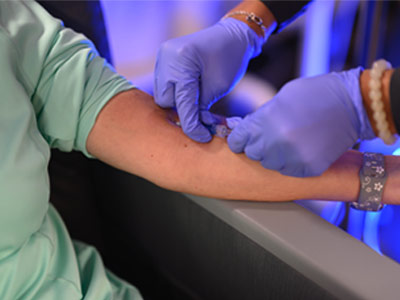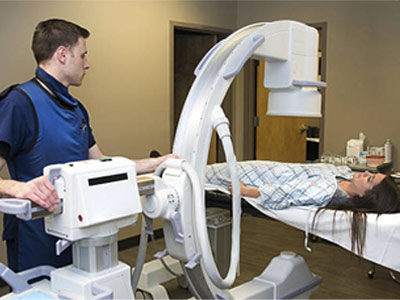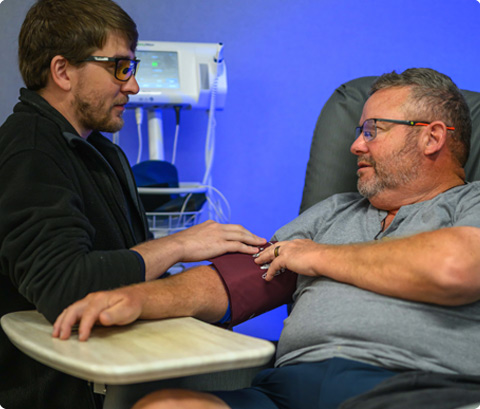Interventional Pain Management Center
Precise. Efficient. Compassionate.
Setting a New Standard for Interventional Pain Care for Lasting Pain Relief
MIND: A Different Pain Practice


Request an Appointment
call us at 248-553-0010
Advanced Treatments. Specialized Precision.
At MIND, our team combines advanced imaging technology, clinical precision, and specialized training to treat even the most complex pain conditions.



Cutting-Edge Procedures and State-of-the-Art Technology
- Over two decades of experience with spinal cord stimulation for chronic pain.
- Ultrasound-guided procedures for improved safety and accuracy—including occipital and peripheral nerve blocks.
- State-of-the-art mobile fluoroscopy (C-arm) system with reduced radiation exposure and enhanced clarity (Retina Imaging Chain with CMOS Technology).
- Next-generation therapies, including platelet-rich plasma (PRP) injections for soft tissue and joint pain.
- Advanced interventional therapies for cervicogenic and chronic headache sufferers.
MIND Board-Certified and Fellowship-Trained Interventional Pain Doctors
Expertise Meets Compassion. That’s the MIND Difference.
Expertise Meets Compassion.
That’s the MIND Difference.

Why Choose MIND for Interventional Pain Management?
Unique Services
- Trial periods for spinal cord stimulators before permanent implantation
- On-site radiologist for immediate imaging consultations
- Telehealth visits for follow-up and continuity of care
- Full in-house diagnostics: MRI, EEG, EMG
Conditions We Treat
We provide advanced, non-opioid treatment for a wide range of acute and chronic pain conditions, using interventional procedures and imaging-guided precision to restore comfort and mobility. Pain Relief at MIND- Sciatic Nerve Pain
- Lower Back Pain
- Knee, Shoulder and Hip Pain
- Neck Pain (Cervicalgia)
- Spine Pain
- Muscle Pain (Myalgia)
- Complex Regional Pain Syndrome (CRPS)
- Lumbar Spondylosis
- Nerve Pain
- Sacroiliac Joint Dysfunction
- Myofascial Pain
- Arthritis Pain
- Chronic Headaches and Migraines
- Cervical Pain
- Neuropathic Pain
Proven Care. Next-Level Relief.
MIND integrates the latest proven treatment innovations with specialized expertise to better diagnose, treat, and manage patient pain.
- Epidural steroid injections – A minimally invasive procedure that can help relieve neck, arm, back, and leg pain caused by inflammation of the spinal nerves due to spinal stenosis or disc herniation. Epidurals at MIND can be performed in three regions: Cervical, Thoracic, and Lumbar.
- Hip, knee, and shoulder joint and trigger point injections can be administered under fluoroscopic guidance.
- Botox injections for migraines, cervical dystonia, TMJD, and thoracic outlet syndrome.

- Minimally invasive nerve blocks that target the joints are used to diagnose axial neck and low back pain, as well as cervicogenic headaches.
- Suprascapular, occipital, supraorbital, and auriculotemporal nerve blocks are performed under ultrasound guidance. A steroid medication may also accompany these.






































